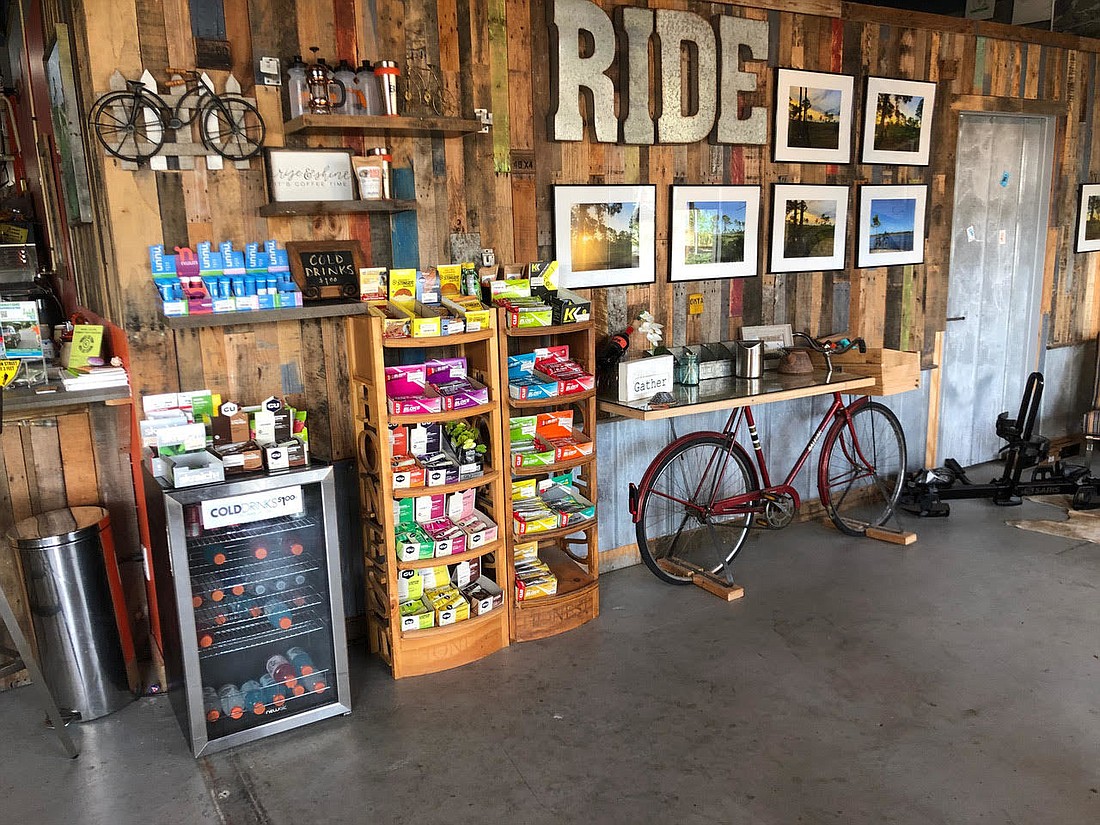- November 23, 2024
-
-
Loading

Loading

During the pandemic, certain activities have gained popularity. More people are taking walks and jigsaw puzzles have sold out in some stores. People are also spending more time binge watching, bird watching, boating, baking and bicycling.
The increase in bicycling has had big implications for area bike shops — some of which have seen a spike in sales in recent months. People have come in to buy bicycles, get an old bike repaired or stock up on gear and accessories. The Bike Bistro in Fort Myers and Sarasota Cycle both report significant sales increases during the coronavirus, and as the owners manage the increased demand, they’re also contending with a key challenge: supply chain issues. Because bikes and bike parts come largely from China, area stores are facing delays getting product into their stores.
The Bike Bistro Owner Steve Martin says his store is selling more bikes and gear and is doing more repairs than it normally would this time of year. He’s seeing regular and new customers come into the shop. “People are getting back out there and cycling,” he says. “It’s one thing they can do because it’s social distancing. It’s outdoors and it makes them feel healthier. People who weren’t typically cycling are now.”
‘We’ve been at this for 50 years, and I’ve never seen anything like it. I’ve never seen shortages like this. We’ve had bikes allocated before, but we never sat around with a darn-near-empty showroom.’ — Dave Holm, Sarasota Cycle
Martin, who recently expanded and remodeled the cafe within his cycle shop, has also seen a huge spike in sales of electric bikes. He attributes much of that demand to the shop’s 55+ demographic. “It’s a good way for people who haven’t biked for a long time to get back into it,” he says of the bikes, traditionally prominent in Europe.
Martin also says that because most bicycle production is in Asia and in China specifically, it’s harder to get products, from bicycles to parts to other supplies. For some inner tubes and other components, The Bike Bistro has had to compete with other shops to put in orders and get them fulfilled. “It gets a little more difficult,” he says. “Lead times and back orders are taking longer than we’d normally have to face.”
Most of the brands The Bike Bistro sells have postponed their launches of new products. Some have delayed new lines until September because of supply and production issues.
With everything in play, Martin doesn’t think supply issues will be resolved anytime soon. “It will take probably the rest of the year to sort out,” he says. “All of our supply chains are saying, ‘We’re doing the best we can.’”
Sarasota Cycle Owner Dave Holm has had a similar experience during the pandemic. Sales have been up at his shop since the area started experiencing coronavirus cases, Holm says. “March, April, May and June were all up tremendously,” he says. In those four months, the shop sold 900 bikes.
Holm says the time period with the closest demand for bicycles to now would be the 1970s, during gas rationing. People bought bikes in droves then, out of fear they wouldn’t be able to get gas.
Now, after the flurry of busy spring months, lack of product has held Sarasota Cycle back in July. “I could be doing two or three times what I’m doing if I had the product,” Holm says. “Normally, I would have 300 bikes in the showroom. I have like 30, and most of those are high-end road bikes or electric. All the mainstream stuff has been gone for a month or more.”
Holm, like Martin, points to bikes and parts coming predominantly from China as the crux of that issue. “We’re going to have some stuff in at the end of this month and August, but it’s going to be slow going for a while,” he says. “Basically, I think a lot of it was not only did we have increased demand, we had the perfect storm — they were pretty much shut down for a couple months in China.”
Now Sarasota Cycle has a waiting list of customers who want bicycles. “We’re going to get some bikes every month between now and the end of the year,” he says. "We just don’t know the quantities and actually when."
Holm thinks the demand and interest in cycling will continue after the pandemic. “There’s going to be a certain amount of people who didn’t ride before and all of a sudden love it,” he says. “We’ve been at this for 50 years, and I’ve never seen anything like it. I’ve never seen shortages like this. We’ve had bikes allocated before, but we never sat around with a darn-near-empty showroom.”